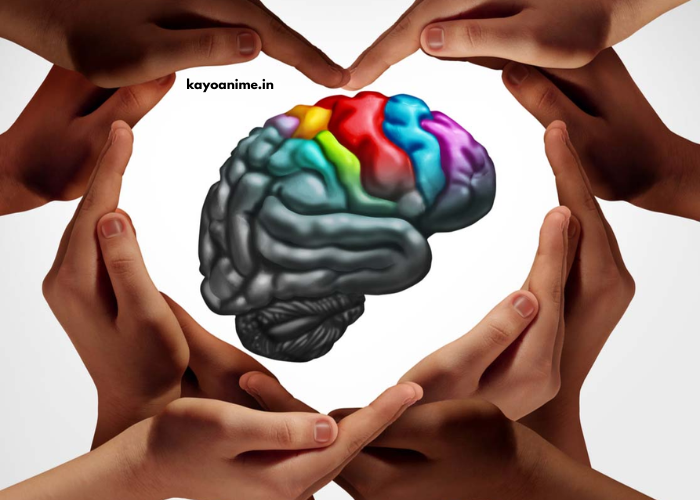In today’s fast-paced world, mental health has become an essential aspect of overall well-being. Amid constant stress, uncertainty, and busy schedules, individuals often forget to prioritize their mental well-being. However, nurturing mental health is as important as maintaining physical health. Engaging in regular mental health practices can create a sense of daily serenity, helping to foster a peaceful, balanced life. In this article, we will explore various mental health practices that can enhance daily serenity and provide tools to combat stress and anxiety.
Understanding Mental Health and Serenity
What is Mental Health?
Mental health encompasses emotional, psychological, and social well-being. It affects how we think, feel, and act. Mental health influences how we handle stress, relate to others, and make choices. The state of mental health can vary throughout life and is shaped by multiple factors, such as genetics, environment, and life experiences. Just like physical health, mental health requires attention and care to thrive.
The Importance of Serenity
Serenity refers to a state of calm, tranquility, and inner peace. Achieving serenity means managing your emotions, thoughts, and behaviors in a way that leads to a peaceful and balanced life. Serenity doesn’t mean the absence of challenges but rather the ability to navigate life’s hurdles with a calm and clear mind. Cultivating serenity on a daily basis has positive impacts on stress management, emotional regulation, and overall happiness.
Mental Health Practices for Daily Serenity
Integrating simple but effective practices into your daily routine can help promote mental well-being and serenity. These habits, when practiced consistently, can reduce anxiety, improve mood, and enhance cognitive function.
1. Mindfulness Meditation: A Path to Calm
Mindfulness meditation is one of the most effective techniques for reducing stress and promoting serenity. It involves focusing on the present moment without judgment. By paying attention to your breath, bodily sensations, or even the sounds around you, you learn to let go of distractions and worries. This practice helps reduce stress, enhances emotional regulation, and can improve overall mental clarity.
How to Practice Mindfulness Meditation:
- Find a quiet space and sit in a comfortable position.
- Close your eyes and take a few deep breaths.
- Focus your attention on your breath, noticing the sensation of air entering and leaving your body.
- If your mind wanders, gently bring your focus back to your breath.
- Start with 5–10 minutes a day, gradually increasing the duration as you become more comfortable.
2. Journaling for Emotional Clarity
Journaling is an effective way to process emotions and thoughts. Writing down your feelings can help you gain perspective, release pent-up emotions, and understand what is contributing to stress or anxiety. Regular journaling allows you to reflect on your day and connect with your innermost thoughts, promoting self-awareness and emotional clarity.
Benefits of Journaling:
- Reduces stress by releasing negative emotions.
- Enhances self-reflection, which improves decision-making and problem-solving.
- Helps you track patterns in behavior and thoughts, allowing you to identify triggers and find coping strategies.
3. Practicing Gratitude: Shifting Focus to Positivity
Gratitude practice is a simple yet powerful way to cultivate daily serenity. By acknowledging the positive aspects of your life, you shift your focus away from stress and negativity. Research has shown that regularly practicing gratitude improves mood, reduces depression, and enhances overall mental health. It encourages a mindset of abundance rather than scarcity, leading to greater emotional resilience.
How to Practice Gratitude:
- Each morning or evening, write down three things you are grateful for.
- Reflect on these things and how they positively impact your life.
- Make it a habit to express gratitude in everyday interactions with others.
4. Physical Exercise: Boosting Mental Well-Being
Regular physical exercise is not only beneficial for physical health but also plays a significant role in mental well-being. Exercise stimulates the release of endorphins, which are natural mood boosters. Physical activity also reduces stress hormones like cortisol and promotes relaxation. Whether it’s a brisk walk, yoga, or a workout session, staying active helps to improve mental clarity, reduce anxiety, and enhance sleep quality.
Benefits of Exercise for Mental Health:
- Improves mood by stimulating endorphin production.
- Reduces anxiety and depression symptoms.
- Enhances sleep quality, which in turn promotes better mental health.
- Increases energy levels and overall sense of well-being.
5. Deep Breathing Techniques: Reducing Stress Instantly
Deep breathing exercises are a quick and effective way to reduce stress and calm the mind. Focusing on deep, slow breaths activates the parasympathetic nervous system, which is responsible for rest and relaxation. This helps to counteract the body’s natural “fight or flight” response, allowing you to manage stress and anxiety more effectively.
Popular Deep Breathing Techniques:
- Box Breathing: Inhale for 4 seconds, hold your breath for 4 seconds, exhale for 4 seconds, and hold again for 4 seconds. Repeat for several minutes.
- 4-7-8 Breathing: Inhale for 4 seconds, hold your breath for 7 seconds, exhale for 8 seconds. This method is effective in calming the nervous system and improving sleep quality.
6. Setting Boundaries: Protecting Your Mental Health
In today’s world, many people struggle with overcommitment and the inability to say “no” to requests from others. Setting healthy boundaries is a critical practice for maintaining mental well-being. By learning to set limits on your time, energy, and resources, you can reduce stress, prevent burnout, and create space for self-care.
Tips for Setting Boundaries:
- Be clear about your limits with others, whether in your personal or professional life.
- Practice saying “no” respectfully when necessary to preserve your mental health.
- Recognize that setting boundaries is not selfish but essential for maintaining a balanced life.
7. Sleep Hygiene: Prioritizing Rest for Mental Health
Quality sleep is essential for maintaining mental and physical health. Lack of sleep or poor-quality sleep can lead to irritability, cognitive impairment, and increased anxiety. Creating a sleep routine and environment conducive to rest can significantly improve mental health. Aim for 7-9 hours of sleep each night to ensure optimal functioning.
Sleep Tips for Mental Health:
- Create a consistent sleep schedule by going to bed and waking up at the same time each day.
- Avoid caffeine, heavy meals, or screen time before bed.
- Create a relaxing pre-bedtime routine, such as reading a book, listening to calming music, or practicing light stretching.
8. Nature Exposure: Reconnecting with the Outdoors
Spending time in nature is a powerful practice for promoting mental well-being. Studies have shown that exposure to green spaces reduces stress, improves mood, and enhances cognitive function. Nature provides a calming environment that encourages mindfulness and presence, which can lead to greater serenity.
How to Incorporate Nature into Your Routine:
- Take daily walks in a park or natural setting.
- Spend time gardening or sitting in a quiet outdoor space.
- Plan weekend hikes or trips to natural locations to disconnect from technology and recharge mentally.
9. Social Connections: Building Meaningful Relationships
Human beings are social creatures, and fostering meaningful relationships is crucial for mental health. Positive social connections provide emotional support, reduce feelings of loneliness, and improve overall happiness. Surrounding yourself with supportive friends and family helps create a network of support during challenging times.
Tips for Nurturing Social Connections:
- Spend quality time with family and friends.
- Engage in group activities or social clubs that align with your interests.
- Practice open and honest communication to strengthen your relationships.
10. Digital Detox: Disconnecting to Reconnect
In today’s hyper-connected world, constant exposure to digital screens can contribute to stress, anxiety, and mental fatigue. A digital detox, or intentional break from screens, helps to reset your mental state and create space for relaxation and mindfulness. Reducing your digital consumption can improve your focus, productivity, and overall mental well-being.
How to Implement a Digital Detox:
- Set aside specific times each day for screen-free activities, such as reading, exercising, or engaging in hobbies.
- Avoid checking emails or social media first thing in the morning or right before bed.
- Schedule tech-free weekends or vacations to fully disconnect and recharge.
Conclusion
Mental health practices are essential tools for achieving daily serenity and cultivating a balanced, peaceful life. Incorporating mindfulness, journaling, exercise, deep breathing, and self-care practices into your routine can significantly improve mental well-being. By prioritizing mental health and implementing these practices, you can better manage stress, reduce anxiety, and create a sense of inner calm amidst life’s challenges. Start small, and over time, these habits will become integral to your daily life, helping you live with greater clarity, resilience, and serenity.





